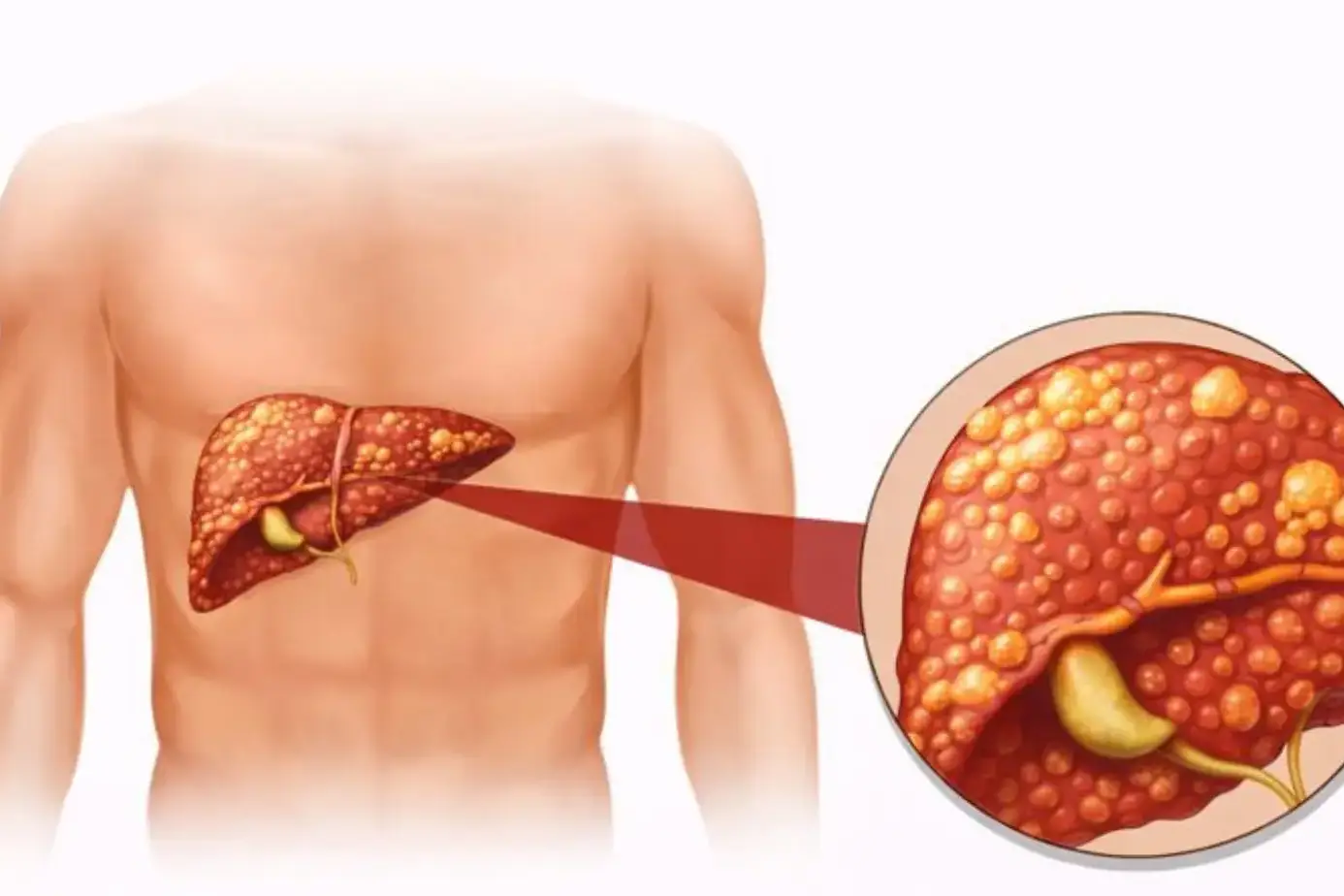Keeping your liver healthy is key to your overall well-being. A liver profile test gives you important insights into your liver’s state. It checks the levels of enzymes, proteins, and substances in your blood.
This shows how well your liver is working. Knowing what your liver test results mean is very important. It helps you and your doctor spot any liver problems early.
By understanding these results, you can take steps to keep your liver healthy. This is crucial for your overall health.
Table of Contents
ToggleIntroduction to Liver Profile Tests
Your liver is very important. It does over 500 things for your body. To keep it healthy, you need to get liver profile tests often. These tests check your liver’s health by looking at what it makes and processes.
What are Liver Profile Tests?
Liver profile tests, or liver function tests, show how your liver is doing. They look at enzymes, proteins, and other things. These show if your liver is working right to get rid of toxins.
Importance of Understanding Liver Health
Knowing about your liver health is key to feeling good. Your liver helps with liver metabolism and liver toxin removal. So, it’s very important for your body.
By checking your liver health often, you can make better choices. This includes what you eat and take, which affects your liver. Regular liver profile tests help you keep your liver healthy.
Components of a Liver Profile Test
Your liver is key to your health. A liver profile test checks how well it’s working. It looks at several important measurements to see how your liver is doing.
Enzymes Measured
The test checks liver enzymes like ALT, AST, ALP, and GGT. These enzymes show if your liver is healthy. If their levels are high, it might mean your liver is damaged.
Your doctor can find liver problems and what’s causing them by looking at these enzymes.
Proteins Evaluated
The test also looks at liver proteins like albumin and total protein. These proteins are important for the liver’s work. Their levels tell us if the liver is making and moving important stuff well.
Bilirubin Levels
Bilirubin is a byproduct of breaking down red blood cells. It’s part of the liver profile test. High bilirubin levels can mean the liver can’t process it right. This might show liver disease or other health issues.
By looking at all these liver function indicators, your doctor can understand your liver’s health. They can find any problems that need more checking or treatment.
Interpreting Liver Profile Test Results
Understanding your liver profile test results is key to keeping an eye on your liver health. This test looks at different parts of your liver. Knowing what’s normal and what’s not can tell you a lot about your overall well-being.
Each component of the liver profile test has its own normal range. Laboratories set these ranges. They help determine if your results are healthy.
Normal Range Values
By comparing your test results to these normal liver test ranges, you can gain insight into the condition of your liver. For instance, the normal range for ALT (alanine transaminase) is between 4 to 36 U/L.
An increased ALT level is often a sign of liver disease. This could be caused by conditions like cirrhosis, hepatitis, or fatty liver.
Patterns of Abnormal Results
- If your liver test results fall outside the normal range, it may indicate a liver issue or another health problem.
- Spotting patterns in abnormal liver results can provide valuable clues about the underlying cause. For example, high enzyme levels or changes in protein levels and bilirubin levels might point to specific liver diseases.
- Working closely with your healthcare provider to interpret your liver profile test results is crucial. Together, you can determine the next steps to keep your liver healthy and address any issues early on.

Liver Diseases and Conditions
Your liver is very important for your health. It can get sick from different diseases and conditions. Knowing about these helps you understand your liver test results and keep it healthy.
Some common liver diseases and conditions include:
- Hepatitis, which is when the liver gets inflamed, often from viruses;
- Cirrhosis, which makes the liver scarred and less effective, often from too much alcohol or chronic liver issues;
- Fatty liver disease, when fat builds up in the liver, usually from being overweight, having diabetes, or other metabolic problems;
- Liver cancer, where there are different types that can hit the liver.
Knowing about liver diseases helps you and your doctor understand your test results. It’s key to keep your liver healthy with regular check-ups and monitoring.
Risk Factors and Causes of Elevated Liver Enzymes
If your liver profile test shows high liver enzymes, it’s important to know why. Lifestyle choices and some medicines can harm your liver. Knowing these risks helps you protect your liver.
Alcohol Consumption
Drinking too much alcohol can hurt your liver. Your liver tries hard to break down alcohol, which can damage it. Drinking in moderation is key to keeping your liver healthy.
Medications and Liver Damage
Some medicines, like antibiotics and painkillers, can raise liver enzymes. Always talk to your doctor about your medicines, especially if your liver test shows problems. Your doctor can find out if the medicines are the cause and suggest safer options.
Other reasons for high liver enzymes include fatty liver disease, viral hepatitis, and autoimmune diseases. Even thyroid disorders and sepsis can cause it.
Knowing why liver enzymes go up helps you and your doctor find the problem. Regular check-ups and taking care of your liver are important. This way, you can avoid and manage liver problems.

Normal Range of ALT
The ALT (alanine aminotransferase) test is key for checking liver health. This enzyme is mainly in the liver. Its levels in blood tell us a lot about our liver’s state.
The normal ALT range is 7 to 56 units per liter (U/L) of serum. If your ALT is in this range, it usually means your liver is healthy. But, the normal range can change a bit between labs and people.
High ALT levels mean different things. A 4-fold increase might show chronic hepatitis, liver cirrhosis, or cancer. A 10-fold increase often means acute hepatitis from viruses or drugs. And a 100-fold increase can show severe liver damage from substances.
ALT can also go up after hard exercise. This is because ALT is in muscles and the heart too. So, high levels after exercise don’t always mean liver disease.
If your ALT levels stay high, your doctor might want to do more tests. These could include hepatitis screening or a liver biopsy. This helps find the cause and plan treatment.
Knowing the normal ALT range helps you take care of your liver. Working with your doctor, you can keep your liver healthy. Regular ALT checks and healthy habits are important for your overall health.

Preparing for a Liver Profile Test
Getting ready for a liver profile test is very important. You need to fast for 10-12 hours before the test. This means no food, drinks (except water), or some medicines. Doing this helps show how healthy your liver is.
Fasting Requirements
Fasting for 10-12 hours is key before your liver test. You can only drink water during this time. This makes sure your test results are accurate, without being affected by food or drinks.
Medication and Supplement Disclosure
Tell your doctor about all medicines, supplements, or herbal remedies you take. Some can change your liver test results. Sharing your full medical history helps your doctor understand your test better.
Avoiding Alcohol
Don’t drink alcohol for at least 72 hours before your test. Alcohol can make your liver enzymes go up. This can give false results. So, avoiding alcohol is important for accurate test results.
By following these steps, you help make sure your liver test is accurate. This lets your doctor make good choices for your liver health.
Follow-up Testing and Monitoring
If your liver test shows something off, your doctor might want to do more tests. These tests help understand your liver better. They might include liver function tests, imaging, or a liver biopsy.
Additional Diagnostic Tests
Your doctor might suggest these tests for your liver health:
- Liver imaging tests like ultrasound, CT scan, or MRI to see your liver’s structure.
- Liver biopsy, where a small liver sample is taken for analysis.
- Blood tests to check liver enzymes or proteins for more info.
These tests help find the cause of liver problems and plan treatment. It’s crucial for people with liver issues or at risk of disease. Follow-up tests and monitoring are key to keeping your liver healthy.
Conclusion
Keeping your liver healthy is key to feeling good. Knowing about liver tests and talking to your doctor helps a lot. It’s important to get regular check-ups and share all your health info.
By following your doctor’s advice, you can understand your liver test results. This helps you catch and fix any liver problems early. Taking care of your liver means you’re looking after your overall health.
Be careful, take action, and work with your healthcare team to keep your liver healthy. With the right information and teamwork, you can protect your liver. This way, it will keep working well for you.
FAQ
What are liver profile tests?
Liver profile tests are blood tests. They check your liver’s health. They look at enzymes, proteins, and other substances made by the liver.
Why are liver profile tests important?
These tests show how well your liver is working. They can spot liver damage or disease early. This helps keep your liver healthy.
What does a liver profile test measure?
It checks liver enzymes like ALT, AST, ALP, and GGT. It also looks at liver proteins and bilirubin levels. These measurements give a full view of your liver’s health.
How do I interpret my liver profile test results?
Your results are compared to normal ranges. If they’re not normal, it might mean you have a liver problem. You’ll need to talk to your doctor about it.
What are some common liver diseases and conditions?
Common liver diseases include hepatitis, cirrhosis, fatty liver disease, and liver cancer. Knowing about these can help you and your doctor understand your test results.
What can cause elevated liver enzymes?
Drinking too much alcohol and some medicines can raise liver enzymes. Talk to your doctor about your lifestyle and medicines if your enzymes are high.
What is the normal range for ALT?
ALT levels should be between 7-56 U/L. If ALT is higher, it might mean your liver is inflamed or damaged.
How do I prepare for a liver profile test?
Fast for 10-12 hours before the test. Avoid alcohol for 72 hours. Tell your doctor about any medicines or supplements you take.
What additional tests may be needed if my liver profile is abnormal?
Your doctor might order more tests like scans or a liver biopsy. These help figure out why your liver profile is abnormal.
Source Links
About The Author

Medically reviewed by Dr. Nivedita Pandey, MD, DM (Gastroenterology)
Senior Gastroenterologist & Hepatologist
Dr. Nivedita Pandey is a U.S.-trained gastroenterologist and hepatologist with extensive experience in diagnosing and treating liver diseases and gastrointestinal disorders. She specializes in liver enzyme abnormalities, fatty liver disease, hepatitis, cirrhosis, and digestive health.
All content is reviewed for medical accuracy and aligned with current clinical guidelines.
About Author | Instagram | Linkedin





